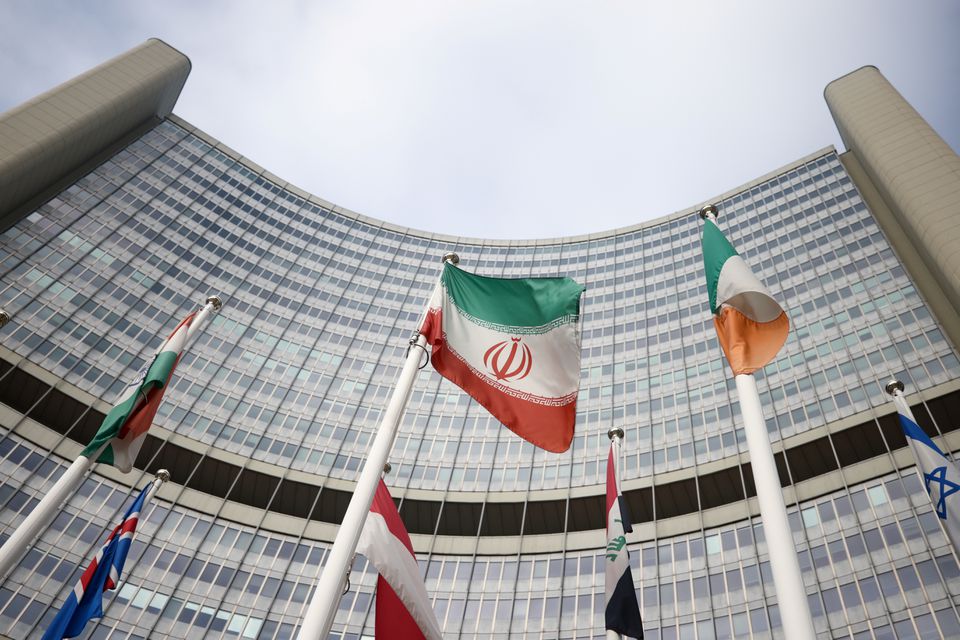Iran has agreed to a visit by a team of International Atomic Energy Agency (IAEA) officials for discussions on allowing an IAEA investigation into undeclared uranium traces found at several Iranian nuclear sites. A confidential IAEA report accessed by Reuters on Thursday noted that Tehran has agreed to host agency members by the end of this month.
The report stressed that “this meeting should be aimed at effectively clarifying and resolving those issues.” “The IAEA expects to start receiving from Iran technically credible explanations on these issues, including access to locations and material, as well as the taking of samples as appropriate,” it noted.
Sources told Reuters that many diplomats see Iran’s offer as a “thinly veiled attempt” to prevent the IAEA Board of Governors from passing a resolution demanding Iran to allow an investigation. However, they stressed that there is little the regime can do to prevent members from passing a resolution.
Iran has after weeks of delay said it will invite IAEA officials to visit Tehran later this month for a technical visit and discussions on the probe. But “The Director General is seriously concerned that there has still been no progress in clarifying and resolving" -2-
— laurence norman (@laurnorman) November 10, 2022
In June, the Board of Governors passed a resolution censuring Iran for failing to inform the agency of uranium traces found at three sites. The report, drafted by the United States (US), the United Kingdom, France, and Germany, was the first time since 2020 that the agency formally condemned Iran.
Tehran retaliated by shutting down 27 Agency cameras in nuclear facilities across the country. Moreover, it threatened to accelerate its nuclear programme further and halt cooperation with the agency.
The dispute over allowing the IAEA to investigate the undeclared uranium traces has stalled talks to revive the 2015 nuclear deal (JCPOA), which have been going on since April 2021. While the West has insisted that Iran allow the investigation, Tehran has stressed it will not allow a probe.
So the verification report is focused on the removed cameras from nuclear related sites making it hard to verify the peaceful nature. The safeguards mention underlines that the presence of the undeclared nuke material undermines ability to draw peaceful program conclusion.-8-
— laurence norman (@laurnorman) November 10, 2022
Talks have been further jeopardised by Iran accelerating its nuclear programme. In August, the nuclear watchdog said Iran has refined uranium to 60% fissile purity from 20% in April in response to the sabotage of its main nuclear enrichment facility in Natanz. According to the IAEA, uranium reaches weapons-grade purity when it is enriched to around 90%.
The following month, the IAEA claimed that Tehran has enriched enough near-weapons-grade uranium to produce a nuclear bomb in a matter of weeks. The report said Iran has a large stockpile of 60% enriched uranium to produce the minimum weapons-grade level of 25kg of 90% enriched uranium. This is way beyond the 3.67% limit set by the JCPOA and has significantly reduced Iran's “breakout time” from years to weeks.
On Thursday, the agency released a second report accusing Iran of further increasing its stockpile of uranium enriched up to 60% from 62.3 kilogrammes to around 70 kilogrammes since the end of September.
UN nuclear watchdog @IAEA rang alarm bells on Thursday after #Iran claimed to have developed a #hypersonic “super missile” capable of penetrating any country’s defense systems. @iaeaorg https://t.co/I9dzgxl72N pic.twitter.com/VSpjq6nzxP
— Arab News (@arabnews) November 11, 2022
US State Department spokesperson Ned Price said “Iran needs to answer the IAEA’s questions” during the upcoming meeting. “We urge Iran to fully cooperate with the IAEA’s safeguards investigations so that the agency can be confident that all the nuclear material in Iran is under those safeguards,” he stated.
Meanwhile, IAEA Director-General Rafael Grossi said on Thursday that Iran’s actions were not encouraging. Speaking on the sidelines of the United Nations climate conference in Egypt, Grossi said, “We see that all these announcements increase the attention, increase the concerns, increase the public attention to the Iranian nuclear programme.” He was referring to Iran’s announcement earlier on Thursday that it has successfully built a hypersonic ballistic missile.
Under the JCPOA, Iran is prohibited from developing missiles capable of carrying nuclear warheads.
Tensions between Iran and the West have further escalated over the Islamic Republic’s crackdown on ongoing anti-regime protests and its military support for Russia. The West has threatened to impose additional sanctions on Tehran for its actions.

